
The Timeless Charm of Souq Waqif
Souq Waqif, located in the heart of Doha, Qatar, is a vibrant market steeped in history and culture. This bustling marketplace has been a center of commerce and social interaction for centuries, offering a glimpse into traditional Qatari life. As you stroll through the labyrinthine alleys, you'll encounter an array of shops selling everything from spices and textiles to perfumes and traditional garments. The architecture, characterized by mud-rendered buildings and wooden beams, transports you back in time, making it a unique and immersive experience. One of the highlights of Souq Waqif is its diverse range of eateries. Whether you're in the mood for traditional Qatari cuisine or international flavors, the souq has something to satisfy every palate. Many restaurants and cafes offer outdoor seating, allowing you to soak in the lively atmosphere while savoring delicious food. Additionally, the souq is home to several art galleries and cultural centers, where you can explore local art and heritage. The souq comes alive in the evenings, with street performers, musicians, and artists adding to the vibrant ambiance. It's also a great place to pick up unique souvenirs and handicrafts, making it a must-visit destination for tourists. Whether you're looking to shop, dine, or simply wander and soak up the atmosphere, Souq Waqif promises an unforgettable experience.
Local tips in Souq Waqif
- Visit in the evening to experience the souq at its liveliest with street performances and a bustling atmosphere.
- Wear comfortable shoes as the cobblestone streets can be uneven.
- Bargaining is common practice; don't hesitate to negotiate prices.
- Try the local Qatari dishes at one of the traditional restaurants for an authentic culinary experience.
- Keep an eye out for the falconry market, a unique aspect of Qatari culture.
The Timeless Charm of Souq Waqif
Souq Waqif, located in the heart of Doha, Qatar, is a vibrant market steeped in history and culture. This bustling marketplace has been a center of commerce and social interaction for centuries, offering a glimpse into traditional Qatari life. As you stroll through the labyrinthine alleys, you'll encounter an array of shops selling everything from spices and textiles to perfumes and traditional garments. The architecture, characterized by mud-rendered buildings and wooden beams, transports you back in time, making it a unique and immersive experience. One of the highlights of Souq Waqif is its diverse range of eateries. Whether you're in the mood for traditional Qatari cuisine or international flavors, the souq has something to satisfy every palate. Many restaurants and cafes offer outdoor seating, allowing you to soak in the lively atmosphere while savoring delicious food. Additionally, the souq is home to several art galleries and cultural centers, where you can explore local art and heritage. The souq comes alive in the evenings, with street performers, musicians, and artists adding to the vibrant ambiance. It's also a great place to pick up unique souvenirs and handicrafts, making it a must-visit destination for tourists. Whether you're looking to shop, dine, or simply wander and soak up the atmosphere, Souq Waqif promises an unforgettable experience.
Iconic landmarks you can’t miss
Souq Waqif
Explore the bustling Souq Waqif, Doha's vibrant traditional market, rich in culture, cuisine, and local crafts, perfect for any traveler seeking authenticity.
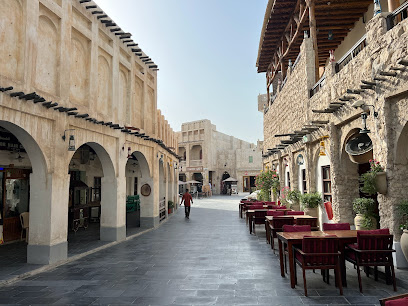
Souq Waqif Park
Experience the tranquility of Souq Waqif Park, a green oasis in Doha where culture meets nature for an unforgettable visit.
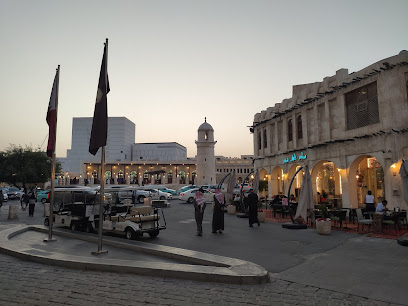
Old Well
Explore the Old Well in Doha, a historical landmark that beautifully blends rich heritage with the vibrant culture of the city.
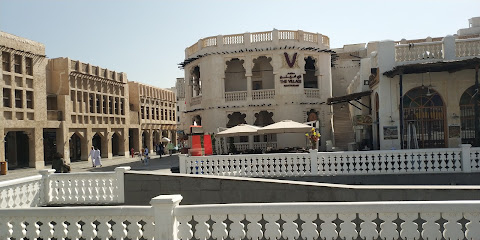
The Golden Thumb Statue
Explore the Golden Thumb Statue in Doha, a captivating landmark reflecting Qatar's rich culture and modern artistry, perfect for unforgettable moments.
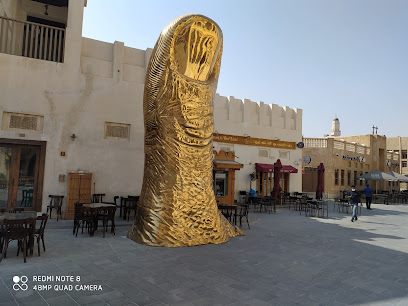
Souq Waqif Western Courtyard
Immerse yourself in the vibrant culture of Qatar at Souq Waqif Western Courtyard, a lively marketplace filled with shops, dining, and rich traditions.
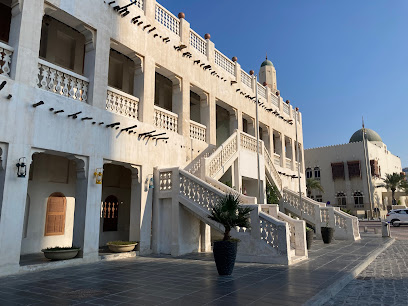
سوق واقف للفنون
Explore the vibrant artistry of Qatar at Souq Waqif for Arts, a cultural treasure in the heart of Doha showcasing local talent and traditional crafts.
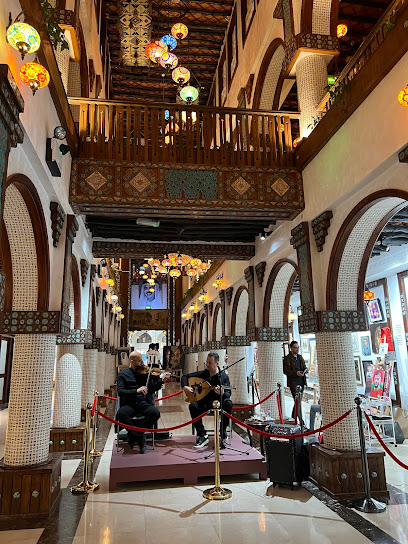
Finger Monument تمثال اصبع الابهام
Explore the Finger Monument in Doha, a striking symbol of modern artistry that captivates visitors with its unique design and cultural significance.
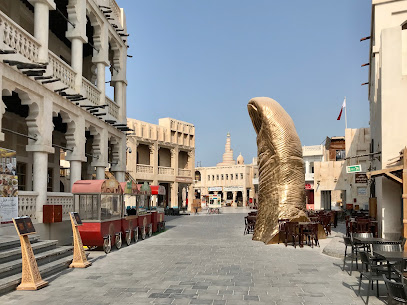
Seating area souq waqif
Discover the vibrant culture and rich heritage at Souq Waqif, Doha's iconic market filled with local crafts, delicious cuisine, and unforgettable experiences.
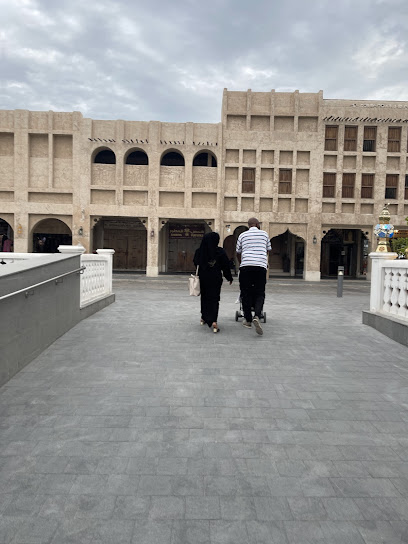
Stone Monument
Discover the Stone Monument in Doha, a striking tribute to Qatar's heritage, nestled in the vibrant Souq Wakif Park, perfect for history and culture enthusiasts.
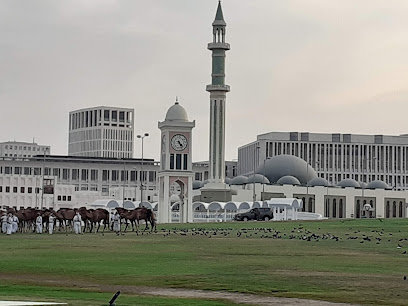
ممر سوق واقف
Explore the cultural heart of Doha at Souq Waqif, where tradition meets modernity in a vibrant marketplace filled with treasures and tantalizing flavors.
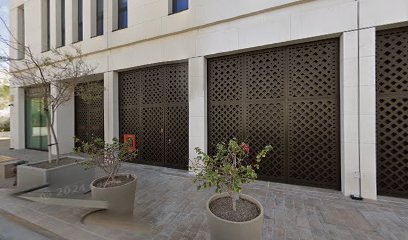
Unmissable attractions to see
Souq Waqif Park
Discover the charm of Doha at Souq Waqif Park, a lush urban escape filled with art, culture, and relaxation.
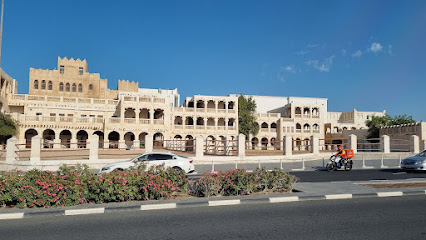
Camel Pen
Experience the enchanting Camel Pen in Doha, where visitors can connect with these majestic creatures and explore Qatar's rich cultural heritage.
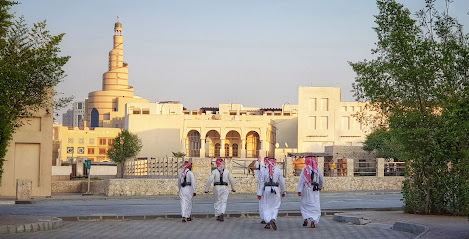
Old Well
Discover the Old Well in Doha, a historical landmark that offers serene beauty and a glimpse into Qatar's rich cultural heritage.
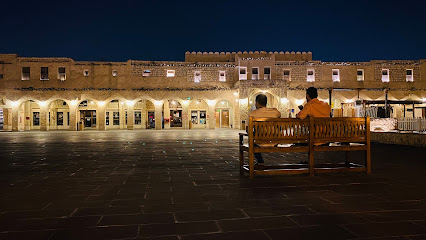
The Golden Thumb Statue
Discover the Golden Thumb Statue in Doha, an iconic landmark that embodies Qatar's culture and artistry, perfect for a memorable visit.
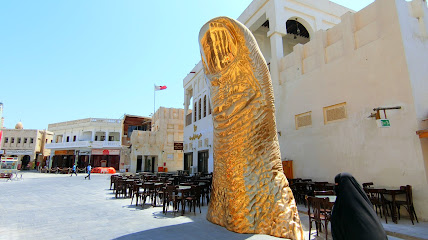
Souq Waqif Western Courtyard
Explore the vibrant Souq Waqif Western Courtyard, a cultural gem in Doha offering shopping, dining, and traditional Qatari experiences.
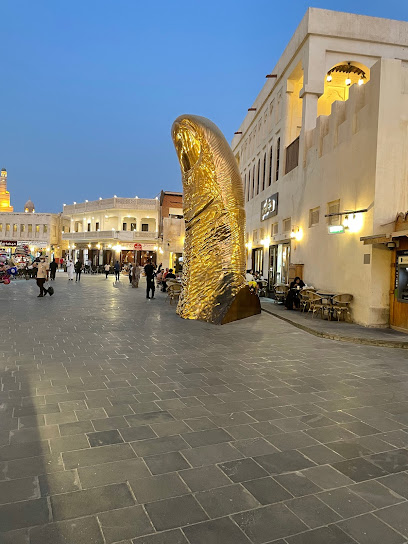
سوق واقف للفنون
Discover the vibrant Souq Waqif in Doha, a cultural hub brimming with traditional crafts, delicious cuisine, and lively atmosphere.
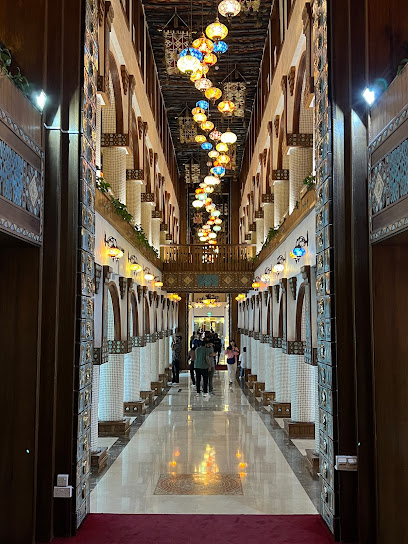
Seating area souq waqif
Experience the vibrant culture and authentic flavors of Doha at Souq Waqif, a must-visit marketplace for all travelers.
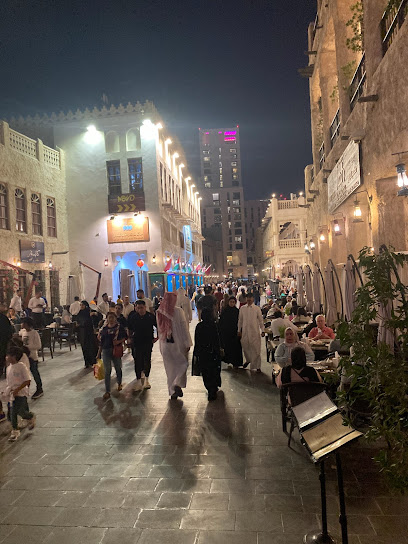
Stone Monument
Explore the stunning Stone Monument in Doha, a blend of rich cultural heritage and vibrant market life at Souq Wakif Park.
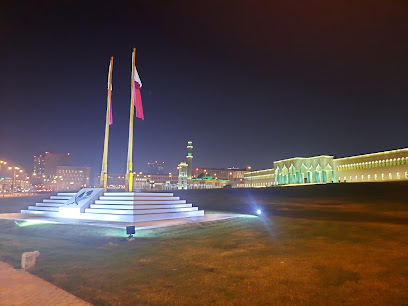
ممر سوق واقف
Discover the vibrant culture of Doha at Memar Souq Wakif, where tradition meets modernity in a delightful marketplace experience.
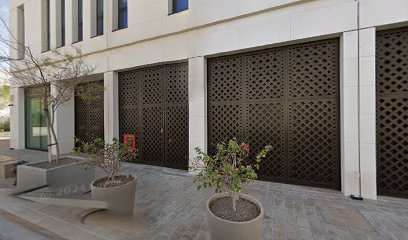
Essential places to dine
Bandar Aden Restaurant
Experience authentic Yemenite cuisine at Bandar Aden Restaurant in Doha - where every dish tells a story.
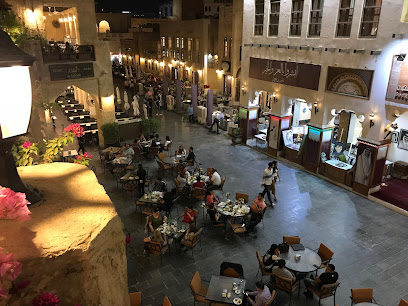
Damasca One Restaurant
Experience authentic Syrian flavors at Damasca One Restaurant in Souq Waqif, Doha - a must-visit for culinary enthusiasts.
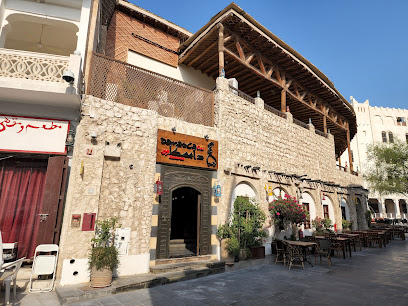
Parisa Souq Waqif
Savor authentic Persian cuisine amidst stunning decor in Doha's vibrant Souq Waqif.
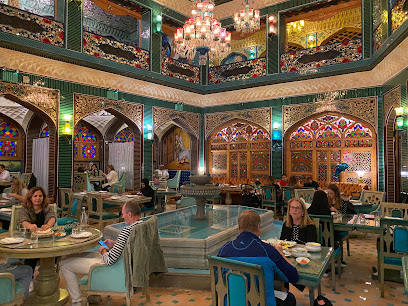
Shay Al Shomous - شاي الشموس
Experience authentic Qatari cuisine at Shay Al Shomous in Souq Waqif, where tradition meets flavor in a vibrant setting.
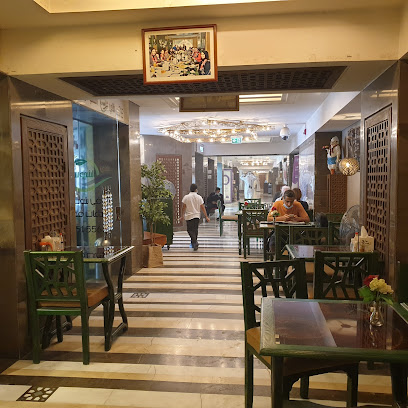
Jasmine Thai Restaurant
Discover authentic Thai cuisine at Jasmine Thai Restaurant in Doha - a culinary journey filled with rich flavors and warm hospitality.
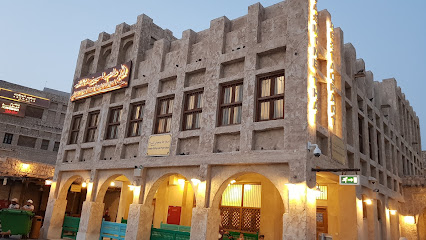
Alkoot cafe
Discover the flavors of Qatar at Alkoot Cafe in Souq Waqif – where tradition meets family-friendly dining.
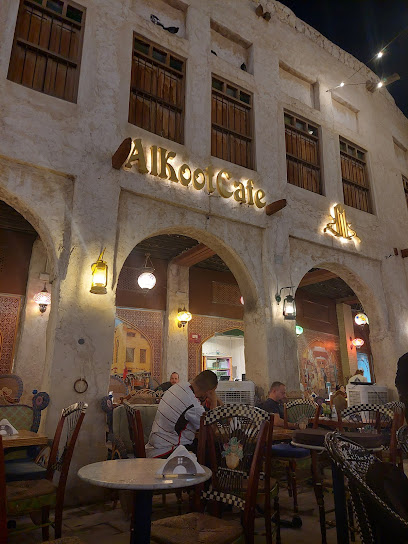
Sufrat Omi Lolwa
Discover authentic Qatari cuisine at Sufrat Omi Lolwa in Souq Waqif—an unforgettable dining experience amid Doha's vibrant marketplace.
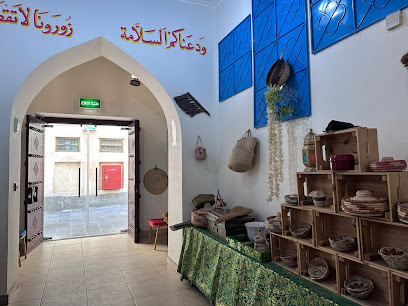
Sanaa Restaurant Souq Waqif
Discover authentic Yemeni cuisine at Sanaa Restaurant in Doha's vibrant Souq Waqif—where tradition meets flavor.
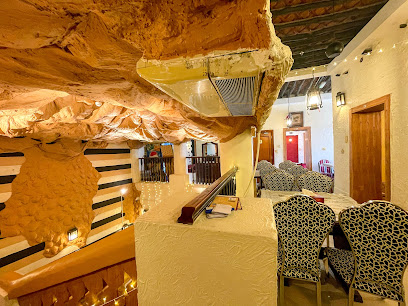
La Piazza - Souq Waqif Boutique Hotels by Tivoli
Savor exquisite flavors at La Piazza in Souq Waqif Boutique Hotels by Tivoli – where tradition meets modern culinary artistry.
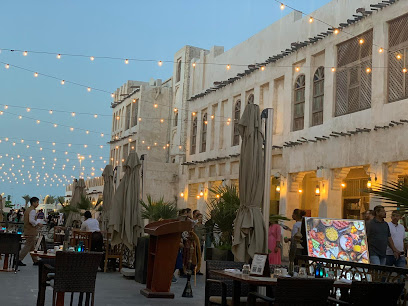
Gahwa Sultan
Experience authentic Qatari cuisine at Gahwa Sultan in Souq Waqif – where tradition meets taste.
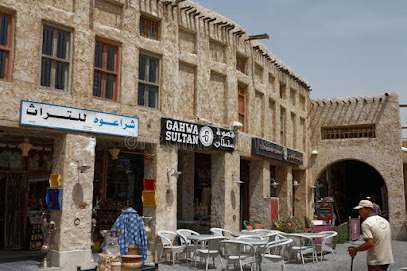
Markets, malls and hidden boutiques
Alsindan Arts & calligraphey
Explore Alsindan Arts & Calligraphy in Doha for unique handcrafted gifts and a glimpse into Qatari artistic traditions.
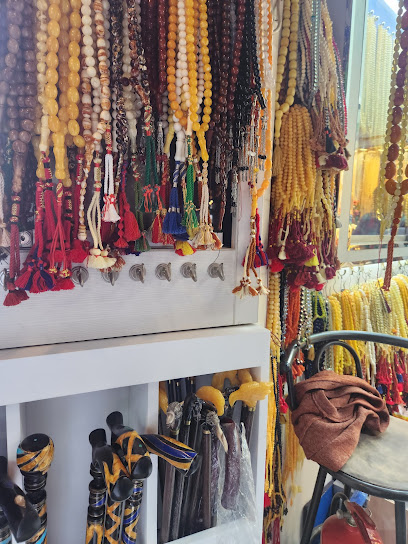
متجر عماد للأقمشة الرجالية
Discover premium men's fabrics at Emad Store in Doha for tailored elegance and style.
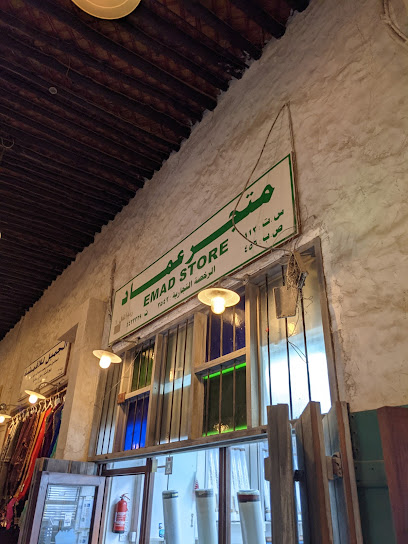
al majalis perfume
Explore the world of fragrances at Al Majalis Perfume in Doha, a unique gift shop offering a blend of tradition and modernity in every scent.
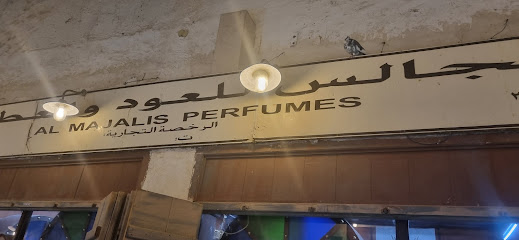
مشغل ام الحناين
Explore مشغل ام الحناين, a unique clothing store in Doha offering exquisite fashion that celebrates Qatari culture and craftsmanship.
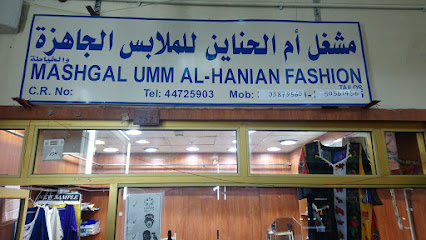
متجر محمد إبراهيم عبدالله وأولاده
Explore exquisite women's clothing at Mohammed Ibrahim Abdullah & Sons in Doha – where tradition meets modern elegance.
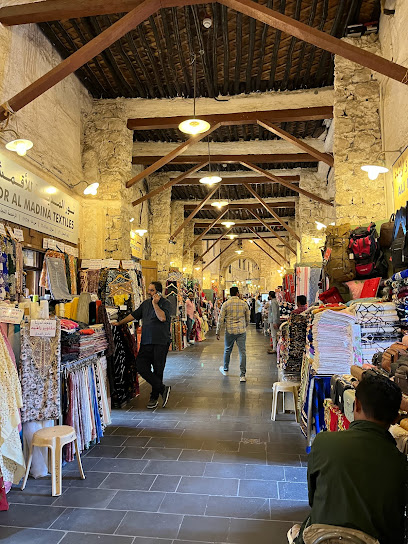
Al-Dar For Souvenirs
Discover authentic Qatari souvenirs at Al-Dar For Souvenirs in Souq Waqif, where culture and craftsmanship come together.
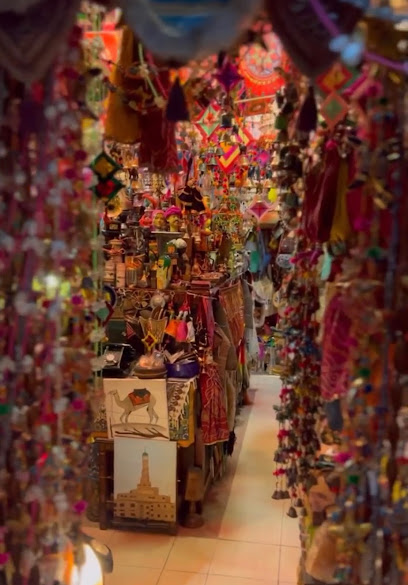
AL KHAZAMA PERFUMES
Discover the enchanting world of fragrances at Al Khazama Perfumes in Doha's vibrant Souq Waqif, where tradition meets modernity.
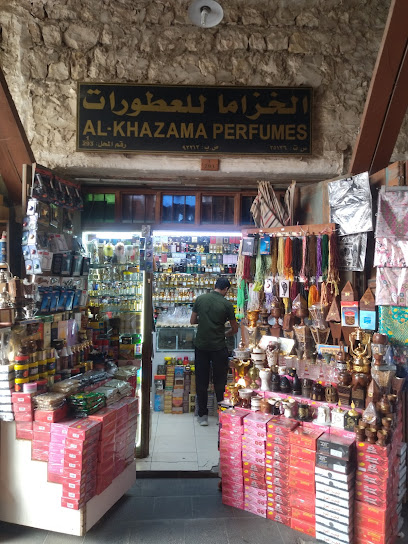
Al madhkhan ladies requirements & perfume
Discover the enchanting fragrances of Al Madhkhan in the heart of Doha's vibrant Souq Waqif, where tradition meets modern elegance.
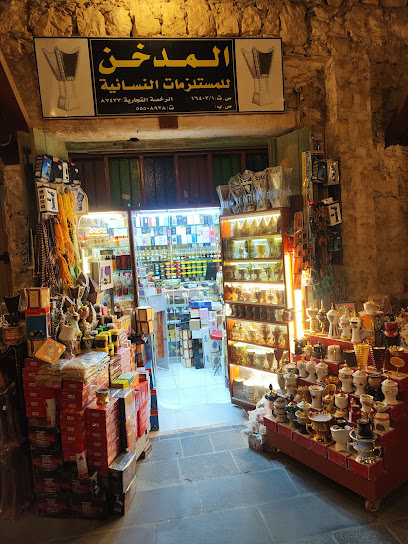
Al kharaij house of Kashmir arts and crafte
Discover the exquisite artistry of Kashmir at Al Kharaij House in Souq Waqif, Doha - a treasure trove of handcrafted gifts and cultural delights.

Haider abbas askanani
Experience the essence of Asian culture through a diverse collection of household goods at Haider Abbas Askanani in Doha's lively Souq Waqif.
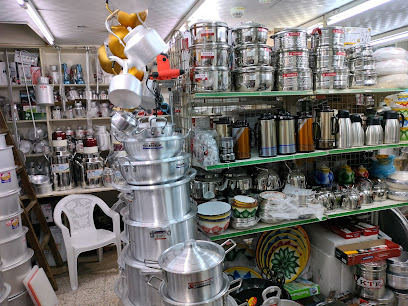
Essential bars & hidden hideouts
KROSSROADS CLUB
Discover KROSSROADS CLUB, Doha's premier bar for a vibrant nightlife experience with stunning views and a diverse drink menu.
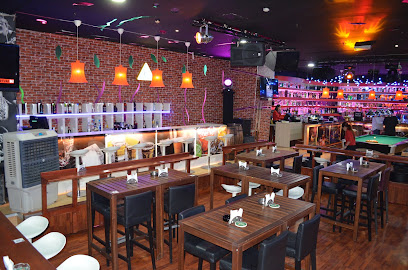
Parisa Souq Waqif
Experience the rich flavors of Persian cuisine in the heart of Doha's vibrant Souq Waqif, where tradition meets culinary excellence.
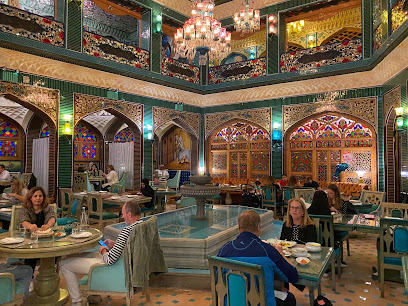
The Irish Pub Doha
Discover the charm of Irish pub culture at The Irish Pub Doha, where great food, drinks, and live entertainment await you in Qatar.
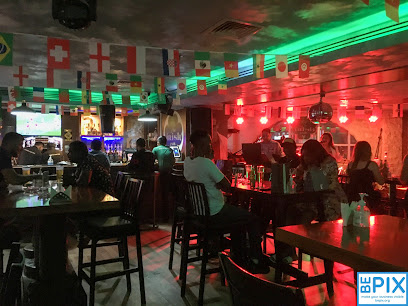
Al Shurfa Arabic Lounge
Discover the essence of Arabic hospitality at Al Shurfa Arabic Lounge, where authentic cuisine meets a beautiful atmosphere in the heart of Doha.
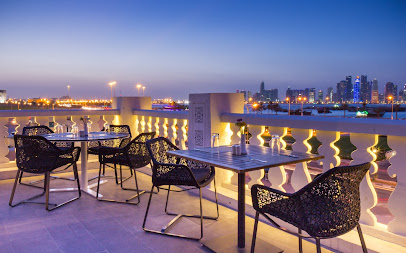
Mix Lounge & Terrace
Discover the vibrant nightlife at Mix Lounge & Terrace in Doha, offering stunning skyline views, delicious cocktails, and a lively atmosphere.
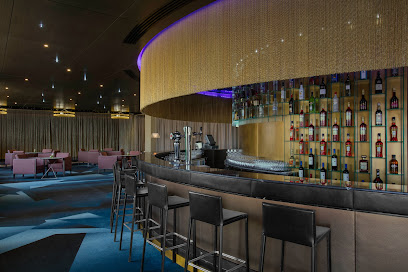
The Tunnel Lounge & Club Doha
Discover the lively nightlife of Doha at The Tunnel Lounge & Club, where stylish interiors meet great drinks and live music for an unforgettable evening.
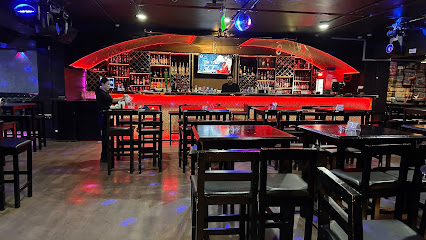
Vagabond
Discover the vibrant nightlife at Vagabond, a must-visit bar in Doha offering exquisite drinks, delicious bites, and lively entertainment.
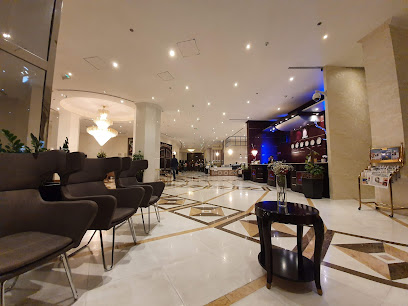
Jazz Up Bar & Sports Lounge
Discover the ultimate mix of sports, music, and delicious drinks at Jazz Up Bar & Sports Lounge in Doha's vibrant Corniche area.
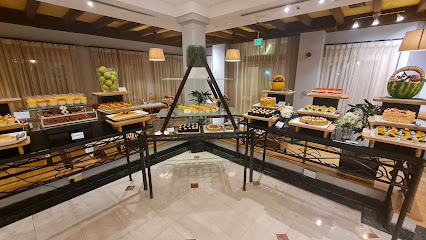
The Hangout Pub
Experience the vibrant nightlife at The Hangout Pub, a premier social hub in Doha's Al Ghanim area, perfect for drinks and gatherings.
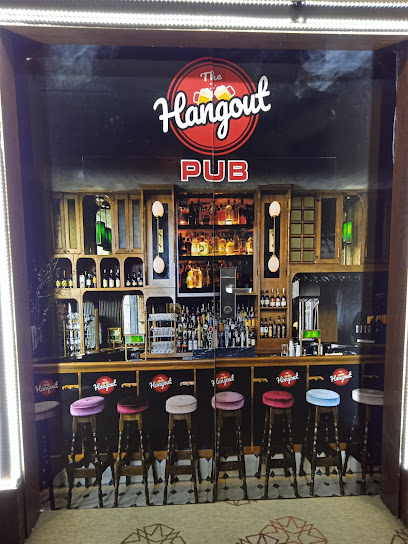
Barcode bar & lounge doha
Discover Barcode Bar & Lounge in Doha – A lively destination for cocktails, music, and unforgettable nights in the heart of Qatar.
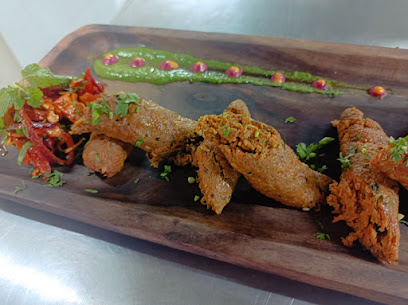
Local Phrases
-
- Helloمرحبا
[marhaba] - Goodbyeوداعا
[wada'an] - Yesنعم
[naam] - Noلا
[la] - Please/You're welcomeمن فضلك / على الرحب والسعة
[min fadlik / 'ala al-rahb was-sa'ah] - Thank youشكراً
[shukran] - Excuse me/Sorryعذرا
[udhran] - How are you?كيف حالك؟
[kayf halik?] - Fine. And you?بخير. وأنت؟
[bikhayr. wa'ant?] - Do you speak English?هل تتحدث الإنجليزية؟
[hal tatahadath al-inglizia?] - I don't understandأنا لا أفهم
[ana la afham]
- Helloمرحبا
-
- I'd like to see the menu, pleaseأريد أن أرى القائمة، من فضلك
[urid an ara al-qaimah, min fadlik] - I don't eat meatأنا لا آكل اللحوم
[ana la akul al-lahum] - Cheers!في صحتك!
[fi sahtak!] - I would like to pay, pleaseأريد أن أدفع، من فضلك
[urid an adfaa, min fadlik]
- I'd like to see the menu, pleaseأريد أن أرى القائمة، من فضلك
-
- Help!النجدة!
[al-najdah!] - Go away!اذهب بعيدا!
[idhab ba'eedan!] - Call the Police!اتصل بالشرطة!
[itasil bialshurta!] - Call a doctor!اتصل بطبيب!
[itasil bitabib!] - I'm lostلقد ضللت الطريق
[laqad dalalt altariq] - I'm illأنا مريض
[ana mareed]
- Help!النجدة!
-
- I'd like to buy...أريد أن أشتري...
[urid an ashtari...] - I'm just lookingأنا فقط أتطلع
[ana faqat atatallaa] - How much is it?كم سعره؟
[kam si'ruh?] - That's too expensiveهذا غالي جدا
[hatha ghali jiddan] - Can you lower the price?هل يمكنك خفض السعر؟
[hal yumkinuk khafd al-si'ur?]
- I'd like to buy...أريد أن أشتري...
-
- What time is it?كم الساعة؟
[kam al-sa'ah?] - It's one o'clockالساعة الواحدة
[al-sa'ah al-wahidah] - Half past (10)العاشرة والنصف
[al-'ashirah w al-nisf] - Morningصباح الخير
[sabah al-khayr] - Afternoonمساء الخير
[masa' al-khayr] - Eveningمساء
[masa'] - Yesterdayأمس
[ams] - Todayاليوم
[al-yawm] - Tomorrowغدا
[ghadan] - 1واحد
[wahid] - 2اثنان
[ithnan] - 3ثلاثة
[thalathah] - 4أربعة
[arba'ah] - 5خمسة
[khamsah] - 6ستة
[sitah] - 7سبعة
[sab'ah] - 8ثمانية
[thamaniah] - 9تسعة
[tis'ah] - 10عشرة
[asharah]
- What time is it?كم الساعة؟
-
- Where's a/the...?أين...؟
[ayn...?] - What's the address?ما هو العنوان؟
[ma huwa al-unnwan?] - Can you show me (on the map)?هل يمكنك أن تريني (على الخريطة)؟
[hal yumkinuk an tarini (ala al-kharitah)?] - When's the next (bus)?متى الحافلة التالية؟
[mata al-hafilah al-taliyah?] - A ticket (to ....)تذكرة (إلى ...)
[tadhkirah (ila ...)]
- Where's a/the...?أين...؟
History of Souq Waqif
-
Souq Waqif's history dates back to the early 20th century, serving as a vital hub for trade and commerce in the region. Originally a gathering place for Bedouins and merchants, the souq was the center for the exchange of goods, including spices, textiles, and handicrafts. Its strategic location near the waterfront facilitated maritime trade, linking Doha to other Gulf cities.
-
During the late 19th and early 20th centuries, Souq Waqif thrived due to Qatar's lucrative pearling industry. The souq became a marketplace for pearl merchants and traders, contributing significantly to the local economy. This boom established Doha as a key player in the pearling trade, attracting merchants from across the Arabian Peninsula.
-
In the mid-20th century, following the decline of the pearling industry and the discovery of oil, Souq Waqif experienced changes that transformed its character. Many traditional shops began to close, and the souq fell into disrepair. However, in the early 2000s, the Qatari government initiated a major restoration project, preserving its original architecture while modernizing its facilities to enhance the visitor experience.
-
The reopening of Souq Waqif in 2006 marked a significant cultural revival in Doha. The souq has since become a focal point for Qatari culture, attracting locals and tourists alike. The souq hosts various cultural events, art exhibitions, and festivals, reinforcing its role as a vibrant center for Qatari traditions, cuisine, and crafts.
-
Today, Souq Waqif stands as a symbol of Qatar's rich heritage and cultural identity. The marketplace reflects the country's commitment to preserving its history while embracing modernization. With its bustling atmosphere, traditional architecture, and diverse offerings, Souq Waqif continues to be a cherished destination for those wishing to experience the essence of Qatari life.
Souq Waqif Essentials
-
Souq Waqif is conveniently located in the heart of Doha. From Hamad International Airport, you can take a taxi or use ride-sharing apps like Uber or Careem, which take approximately 20-30 minutes. If you are coming from other neighborhoods like West Bay or The Pearl, public buses (such as Bus 76 or 777) and the Doha Metro (Red Line) provide easy access, with the Souq Waqif Metro Station being the closest.
-
Souq Waqif is a pedestrian-friendly area, making it easy to explore on foot. The narrow alleyways and vibrant stalls encourage leisurely strolls. While the metro is not needed within the souq, nearby metro stations can be used for accessing the broader city. Taxis and ride-sharing services are also available for longer trips or if you wish to venture further out.
-
Souq Waqif is generally safe for tourists, with low crime rates. However, it is advisable to remain aware of your surroundings, especially in crowded areas where pickpocketing can occur. Avoid displaying valuable items and keep your belongings secure. Areas outside the souq should be approached with caution at night; stick to well-lit and populated streets.
-
In case of an emergency, dial 999 for police, fire, or medical assistance. There are a few hospitals and clinics in Doha, with the nearest being Hamad General Hospital. It’s advisable to have travel insurance that covers medical emergencies. Also, familiarize yourself with the location of the nearest pharmacy for minor health issues.
-
Fashion: Do dress modestly; women should cover shoulders and knees, while men should avoid shorts. Religion: Do respect local customs, especially during prayer times. Public Transport: Do give up your seat for the elderly and disabled; don't eat or drink on the metro. Greetings: Do greet locals with a friendly 'Salam' (peace); don't engage in overly familiar physical contact. Eating & Drinking: Do try local dishes and accept hospitality; don’t eat in public during Ramadan.
-
To experience Souq Waqif like a local, visit early in the morning when the market is less crowded and the vendors are setting up. Engage in conversations with shopkeepers to learn about their crafts, and don't hesitate to bargain when shopping. Try local delicacies at the eateries, especially the shawarma and Arabic sweets. Attending cultural events or performances at the nearby Cultural Village (Katara) can enhance your visit.
-
When visiting, it’s important to be mindful of local customs. Always ask for permission before taking photographs of people, particularly women. During the holy month of Ramadan, be respectful by refraining from eating, drinking, or smoking in public during daylight hours. It's also courteous to remove shoes when entering someone's home or certain cultural sites.
-
Souq Waqif offers a variety of dining options from casual street food to upscale restaurants. Be sure to try traditional Qatari dishes such as Machboos (spiced rice) and Harees. The market is also famous for its diverse range of shops selling spices, textiles, and handicrafts. Remember to check the opening hours, as many shops close in the afternoon during the hottest part of the day.
Nearby Cities to Souq Waqif
-
Things To Do in Al Rayyan
-
Things To Do in Al Wakrah
-
Things To Do in Umm Salal
-
Things To Do in Al Daayen
-
Things To Do in Al Sheehaniya
-
Things To Do in Mesaieed
-
Things To Do in Al Khor
-
Things To Do in Al Shamal
-
Things To Do in Sitra
-
Things To Do in Riffa
-
Things To Do in Isa Town
-
Things To Do in Hamad Town
-
Things To Do in Juffair
-
Things To Do in Manama
-
Things To Do in Amwaj Islands











